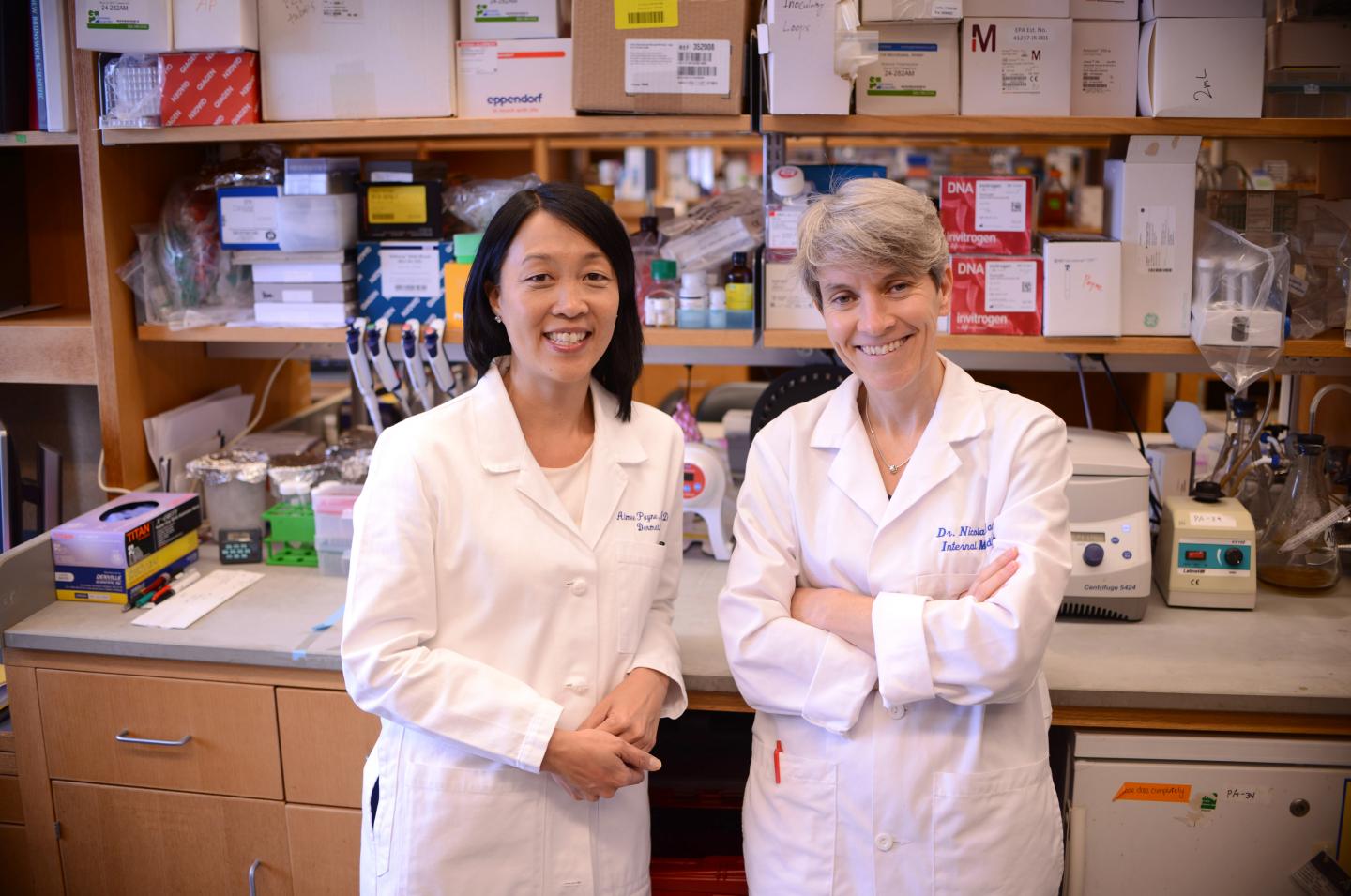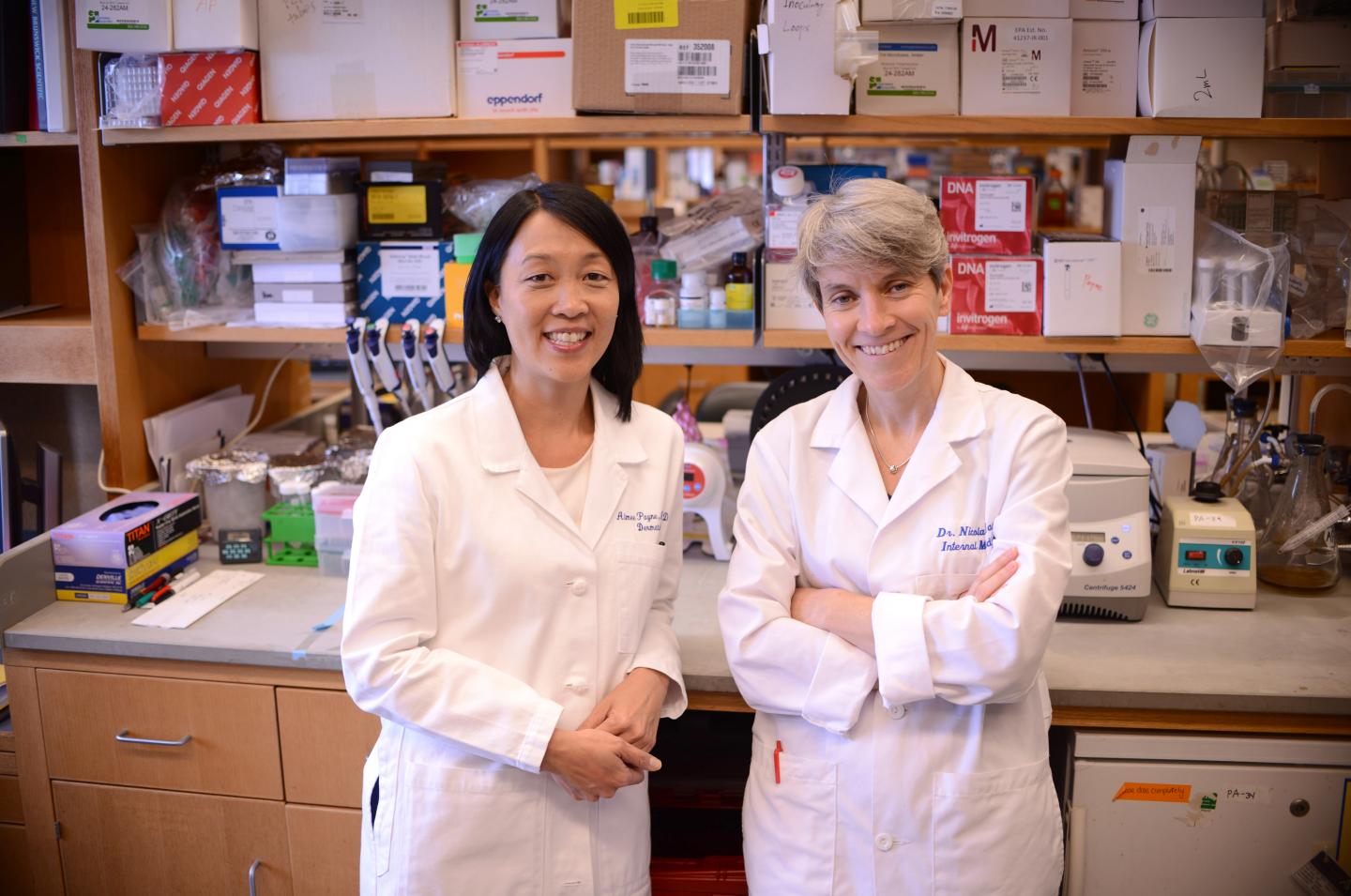
Credit: University of Pennsylvania
Nicola J. Mason, BVetMed, PhD, associate professor of Medicine and Pathobiology at the School of Veterinary Medicine at the University of Pennsylvania, and Aimee S. Payne, MD, PhD, the Albert M. Kligman Associate Professor of Dermatology at the Perelman School of Medicine at the University of Pennsylvania, have received the prestigious NIH Director's Transformative Research Award. The award is part of the NIH Common Fund's High-Risk, High-Reward Research program, which was established to accelerate the pace of biomedical discoveries by supporting exceptionally creative scientists with highly innovative research.
Autoimmunity occurs when the body's immune system mistakenly attacks normal tissues, thereby causing diseases such as rheumatoid arthritis, systemic lupus, and type 1 diabetes. According to the Autoimmune Disease Research Center at John Hopkins, at least ten million Americans suffer from the more than eighty illnesses caused by autoimmunity. Under the grant, Mason and Payne are looking to evaluate a genetically engineered cell-based therapy approach to treat pet dogs with naturally occurring autoimmune skin disease known as pemphigus. Dogs are one of the few other species to develop pemphigus naturally and the condition mirrors pemphigus in human patients. Evaluation of this approach to treat pet dogs with this debilitating disease may ultimately lead to breakthrough therapies for humans.
"The successful treatment of autoimmunity in the family dog using this unique approach would not only be a breakthrough in veterinary medicine," said Mason, "but could also change the way autoimmune disease is treated in humans. We believe that this work may facilitate the translation of cellular immunotherapies for a broad range of canine and human diseases, including autoimmunity, transplant rejection, infectious disease and cancer."
Mason and Payne will continue to focus on their novel gene-engineered chimeric autoantibody receptor T cell (CAART) immunotherapy and its potential to cause lasting remission of antibody-mediated disease.
"Our study of CAART immunotherapy in companion dogs with naturally occurring autoimmune disease will be synergistic with our efforts to develop similar human therapies," said Payne. "By comparing how these complex cellular immunotherapies work in dogs versus humans, we will better understand how to engineer and deliver these therapies to potentially cure disease."
Mason, who earned her BVetMed from the University of London, and her PhD from the University of Pennsylvania, is a board-certified veterinary internist and immunologist. For the past ten years, she has been actively involved in evaluating the immunological responses of immune-based therapies in client-owned dogs suffering from lymphoma, osteosarcoma, and hemangiosarcoma. Mason's research laboratory is currently developing CAR-T cell therapies for dogs with B cell lymphoma, and she serves as the PI and lead investigator on the first clinical trial evaluating CAR-T cell therapies in dogs.
This research is supported by the National Institutes of Health under award number R01 AR075337.
###
About Penn Vet
Ranked among the top ten veterinary schools worldwide, the University of Pennsylvania School of Veterinary Medicine (Penn Vet) is a global leader in veterinary education, research, and clinical care. Founded in 1884, Penn Vet is the first veterinary school developed in association with a medical school. The school is a proud member of the One Health initiative, linking human, animal, and environmental health.
Penn Vet serves a diverse population of animals at its two campuses, which include extensive diagnostic and research laboratories. Ryan Hospital in Philadelphia provides care for dogs, cats, and other domestic/companion animals, handling nearly 35,000 patient visits a year. New Bolton Center, Penn Vet's large-animal hospital on nearly 700 acres in rural Kennett Square, PA, cares for horses and livestock/farm animals. The hospital handles nearly 4,900 patient visits a year, while the Field Service treats more than 38,000 patients at local farms. In addition, New Bolton Center's campus includes a swine center, working dairy, and poultry unit that provide valuable research for the agriculture industry.
For more information, visit http://www.vet.upenn.edu.
Media Contact
Martin Hackett
[email protected]
215-898-1475
@Penn
http://www.upenn.edu/pennnews
Original Source
http://www.vet.upenn.edu/about/press-room/press-releases/article/penn-vet-s-nicola-mason-receives-nih-research-award-to-target-therapies-for-autoimmune-disease-in-dogs





